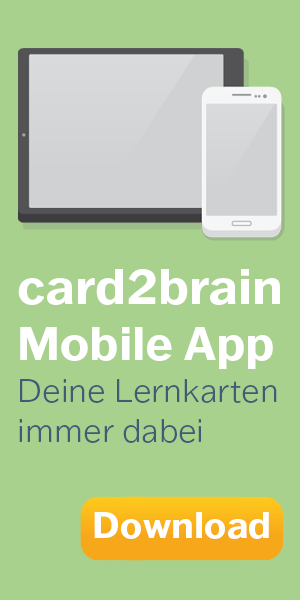English grammar
Times, etc.
Times, etc.
Kartei Details
| Karten | 10 |
|---|---|
| Sprache | Deutsch |
| Kategorie | Englisch |
| Stufe | Grundschule |
| Erstellt / Aktualisiert | 17.11.2012 / 10.04.2016 |
| Lizenzierung | Kein Urheberrechtsschutz (CC0) |
| Weblink |
https://card2brain.ch/box/english_grammar1
|
| Einbinden |
<iframe src="https://card2brain.ch/box/english_grammar1/embed" width="780" height="150" scrolling="no" frameborder="0"></iframe>
|
Preposition of time 'on'
We use 'on' before days of the week and dates.
Bsp.: on the 18th, on Tuesday morning, on my birthday, on the phone, on 079 545 77 30, on foot
Preposition of time 'at'
We use 'at' before times, the weekend, the end of the day, the moment.
Bsp.: at 3'clock, at Christmas, at the weekend, at the end of the day, at the moment
Preposition of time 'in'
We use 'in' before months, seasons and years.
Bsp.: in April, in the afternoon, in the summer, in 1969, in Copenhagen
Present simple
We use the 'present simple' in the following cases:
permanent situations, routines and frequency, facts, programmes and timetables, possession (=Besitz)
I / you / we / they work, he / she / it works
I / you / we / they do work, he / she / it does work
Present continuous
We use the 'present continuous' in the following cases:
- moment of speaking (He is talking to a coustomer on the other phone)
- current projects that are taking place over a periode of time
- temporary situations
- current trends and slow changes (inflation are falling, the economy is growing)
I am working, you / we / they are working, he / she / it is working
Past simple
We use the 'past simple' in the following cases:
completed actions in the past, time expressions with prepositions (at, on, in)
Positive: I / you / he / she / it / we / they worked
Negatives: I / you / he / she / it / we / they did work
Questions: Did I / you / he / she / it / we / they work?
There are some irregular verbs:
Bsp.: go - went, make - made, become - became, begin - began, bring - brought, burn - burnt, dig - dug, lie - lay, eat - ate, read - read, etc.
To be: I / you / we / they were, he / she / it was
Present perfect
We use the 'present perfect' in the following cases:
- A link between a present situation and something that happened at an unspecified time in the past
Bsp.: I have given your report to the MD.
(Past action: I gave her your report yesterday. Present result: She has the report now.)
Some words which indicate the present perfect:
- ever, never
- already (in positives)
- yet (in questions and negatives)
- just, so far, still
- this month (the month is not finished )
- this morning (It's now 11.15, the morning has not finished.)
Positive: I / you / we / they have taken, he / she / it has taken
Negatives: I / you / we / they haven't taken, he / she / it hasn't taken
Questions: Have I / you / we / they taken, Has he / she / it taken?
There are some irregular verbs:
Bsp.: go - gone, be - been, make - made, become - become, begin - begun, bring - brought, burn - burnt, dig - dug, lie - lain, eat - eaten, read - read, etc.
Countable nouns
Countable nouns can be singular or plural. We use 'a', 'an' or 'some' before them.
- a lot of / lots of
- any
- many
- a few
- several
- a couple of






